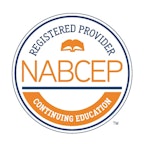About this course
Drones are tools to generate new revenue by doing asset inspections, site surveys, mapping, marketing videos, and more. They’re inexpensive and incredibly versatile.
Since 2016, the Federal Aviation Administration (FAA) has licensed commercial small Unmanned Aircraft System (sUAS, or ‘drone’) operators under 14 CFR Part 107. With the completion of a course of comprehensive ground instruction, prospective drone pilots can sit an FAA-administered computer-based test and obtain their Part 107 commercial operators license. This course covers regulations, sUAS operations, aircraft performance, weather, airspace and human factors and leads to a 60-question exam.
This Field Operations Course introduces Part 107 holders and students to the 'day in the life of' a commercial drone operator and provides skills required to build a business, safely prepare, launch and perform commercial flight tasks; The end goal is to be able to safety deploy a briefed team, with the right aircraft and sensors, to a properly surveyed, remote site with the correct PPE, data-cards, power supplies and support. The program introduces advanced planning, procedures and field flight techniques for professional, commercial drone data gathering, and client task completion.The course is mostly remote with guided simulator sessions, and then culminates in an optional in-residence portion of live flight and maintenance activities. A certificate of completion is awarded upon completion of written, simulator and practical exercise assessments.
In this course, we use the Zephyr flight simulator and a controller. The Zephyr simulator is $135 and a one-year license can be purchased from a link within the course. Additionally, we provide a link to purchase an Orca controller, but you may already have another supported controller you'd like to use (like Xbox One or Playstation 4&5 controllers). Links are provided again in the first set of assignments. No other hardware or software are required (you don't even have to have a drone - often students wait until after the course to understand which drone to buy).
The FAA 107 Exam fee is a separate fee charged by the FAA when scheduling your exam after you have completed the course. After completing the course and earning a certificate of completion, students can optionally submit an FAA application and $150 exam fee then schedule to take the 107 exam at one of the testing centers throughout the country. If you don't pass the exam on the first try, we'll refund your exam fee and let let you take the course again at no charge.
Learning Objectives
- Pass the FAA Part 107 Drone Pilot license exam
- Develop the tools and skillset to collect data witb your drone and produce reports that drive business value
- Learn to run a drone business and develop into a fleet leader and manager
This course is included in these bundles
Course outline
Welcome • 8 assignments
Orientation Materials
Module 1 • 17 assignments
Part 107 Regulations and Small UAS Weather
Module 2 • 10 assignments
Small UAS Operations, US Airspace & Charts
Module 3 • 10 assignments
Small UAS Performance, Human Factors
Module 4 • 8 assignments
Part 107 Exam Review
Module 5 • 7 assignments
Field Operations Preparations
Module 6 • 7 assignments
Pre-site Surveys, Job Hazard Assessments, Pre-deployment prep
Module 7 • 14 assignments
On Site Procedures, Normal & Emergency Operations
Module 8 • 9 assignments
Post-flight Activities, Data Handling & Report Production
Module 9 • 5 assignments
Top Tips and Traps for Young Players and Live Fly Practicals
Module 10 • 3 assignments
Evaluation Week
Module 11 • 4 assignments
Graduation Week
Module 12 • 3 assignments
Post Grad Work
Conclusion • 4 assignments
Feedback and Additional Resources
Continuing Education Units
Approved for the following CEUs
- NABCEP Advanced Credit Hours
- NABCEP JTA
- NABCEP RE Elective
- NABCEP PV Associate Renewal
NABCEP Registered Provider

This course counts towards the training requirements for taking NABCEP professional certification exams and CEUs for renewing all certifications.
Instructor

Keven Gambold
Keven Gambold (Squadron Leader RAF, Ret.) completed 21 years of active duty service with the Royal Air Force as a front-line combat pilot. After over 1500 hours in Tornado GR4 fast-jets, including active participation in all recent multi-national conflicts, Gambold joined a Combined Predator Task Force logging over 1500 hours of unmanned combat missions and two...
Frequently asked questions
Full FAQHow does this course work?
How long do I have access to the materials?
What is the process for getting the FAA license and the cost for the FAA 107 exam? How long does the license last?
After completing the course, you can submit your FAA application and $150 testing fee on the FAA website, then you can schedule to take the 107 exam. There are detailed steps for submitting the FAA application included in the last module of the course.
This course prepares you to for the FAA-administered computer-based test so you can obtain your Part 107 commercial operators license. If you don't pass the exam on the first try, we'll refund your exam fee and let you take the course again for free.
Is there a certificate of completion?
Are students required to have a specific drone for the course or will any drone do?
The instructor Keven Gambold does spend some time discussing different types of drones, he also has a free course on this topic - Picking a Drone: Job Performance vs Cost.
Can I register multiple people?
Does this course also to through solar thermal inspections and how to set up thermal camera?
During the 12 week instructor-led session, Keven will be in the course answering questions on the discussion board and hosting a weekly conference call so you can dive deeper on any topic related to drones and your business.
Who is out there using drones succesfully now? Is there an opportunity to provide drone services to other companies? What is the market like?
There are opportunities to offer drone services to other companies. It can generate incremental revenue and there is evidence that this market will grow over time.
Having said that, the bigger opportunity is in using drones to make your own company better. Companies using drones to lower costs and sell more jobs are seeing the best return on investment.

